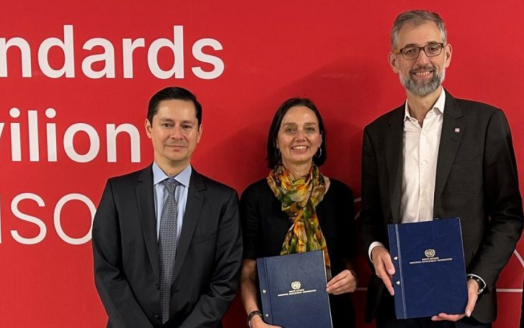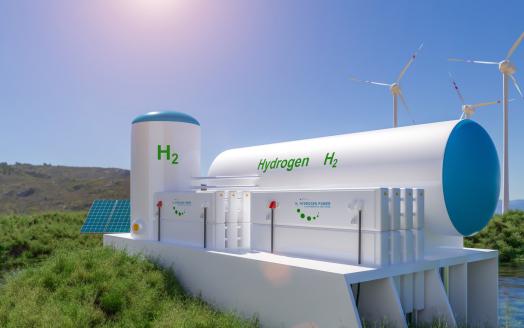Standards
Our Mission in this field
Assisting developing countries in facilitating reliable standards and quality infrastructure development, which serve as critical enablers of the sector's long-term success.
To fully leverage the potential of the hydrogen economy, countries need to establish clear and robust infrastructure to facilitate the growth of both demand and supply. Such infrastructure must be underpinned by reliable standards and quality infrastructure, which is vital to rolling out technologies and applications and will serve as a critical enabler of the sector's long-term success.
A standard is a document that provides requirements, specifications, guidelines or characteristics that can be used consistently to ensure that materials, products, processes and services are fit for their purpose. Standards are fundamental to ensuring international trade and the safety and sustainability of hydrogen. Keeping informed about the most current standards can drive innovation and increase the market value of an engineer’s research and design efforts. It can also promote international trade and commerce, which then fuels more innovation.
The adoption of globally recognized norms and guidelines will allow emerging economies to achieve two key objectives: 1) the development of their domestic renewable energy resources and scaling up low-carbon hydrogen production, and 2) the development of well-established hydrogen markets. These efforts will contribute to the countries’ net-zero transition.
Right now, a number of international standards and certification schemes are under development. Regulations based on international standards are regarded as the least trade restrictive and have the potential to be more equitable towards developing countries, especially if the latter are closely involved in defining these standards.
But standards are just a document. What is really necessary is to have the whole infrastructure in place for a country producing hydrogen. Infrastructure can verify, inspect, certify, measure accurately, and accredit competence to assess conformity to a given standard. Countries with hydrogen strategies in place must prepare and anticipate their infrastructure to make use of internationally adopted standards.
Over the years, UNIDO has helped many countries to integrate into the global economy by meeting regulatory and market requirements and establishing related national capacities, including national standards bodies (NSBs) accreditation, metrology and conformity assessment services. UNIDO has contributed technical inputs during the standards development process and has served as a thought leader in various sectors. UNIDO’s support for developing hydrogen standards and its related quality infrastructure is no exception.
The UNIDO’s Global Programme for Hydrogen in Industry aims to foster engagement from emerging economies in the development of international hydrogen-related standards. Additionally, the program is designed to facilitate standards alignment across countries and support the standardization process.
In this focus area, UNIDO provides support on the global as well as regional & national levels:
- Advising countries on the potential benefits and advantages of incorporating references to standards in their regulations and policies regarding hydrogen.
- Accelerating the knowledge of developing countries on hydrogen standards by crafting and dispensing educational materials, innovative tools and practical solutions (i.e. GHG methodology to account GHG emission in hydrogen production, conditioning and storage; cartography of standards required along the value chain of hydrogen.
- Enhancing participation of developing countries in international standard-setting negotiations and initiatives (including the identification of the necessary institutions' competencies to assess compliance against the standards. Institutions comprise recognized accreditation, certification, verification and inspection bodies, and testing laboratories.)
- Identifying measurement technologies and skills necessary to ensure accurate measures and accounting (i.e. H2 purity, pressure, volume, temperature, weight, DC/AC current, CO2 content, gas mixing, leakages, etc.).
On this level, UNIDO assesses regional and national gaps in standards and quality infrastructures, designs specific strategies/roadmaps to tackle gaps identified and builds local capacities by organizing training and adapting the tools and materials developed on the global level. Specifically:
- Building the capacity of national or regional standards bodies and their technical committees to develop, adopt and/or adapt standards required for the hydrogen economy.
- Building technical skills and capacity of institutions and auditors, inspectors, certifiers, analysts and technicians.
- Supporting specific capacity-building activities in target countries to improve measurement infrastructure and technology.
Highlights
Advanced Filter




